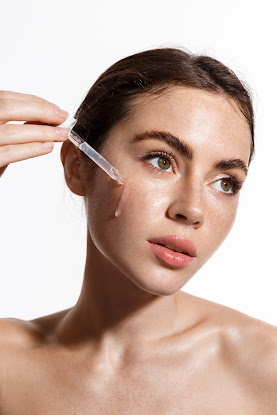DO YOU HAVE SENSITIVE SKIN?
Most people think they have sensitive skin because they have fair skin that burns easily or that gets scaly or stays red for a long time. These types of conditions are called photosensitive skin, dry skin and healing skin but it is hard for one to determine whether it’s sensitive or one of these other conditions with lack of knowledge. It’s this confusion that leads many to purchase products that are not appropriate and further irritation.
The most common cause for sensitive skin is there has been damage to the skin barrier. This means that something has irritated the surface of the skin resulting in redness, flaking and tenderness with associated stinging, itching, burning and pain sensations. This is due to using too aggressive of products or washcloths or alpha hydroxy exfoliating agents.
Sensitive skin is a side effect of the enthusiastic customer who wants to try everything and take everyone’s advice as to what’s best for their skin and what new product they should try next. With weekly microdermabrasion treatments, daily face peels and nightly retinol these all damage the skin’s barrier overtime which produce sensitive skin. The solution to the problem is to simply discontinue the damaging products and begin a routine that will help to restore, repair and nourish the skin.
The 3 most common causes of sensitive skin is eczema, rosacea and atopic dermatitis. Individuals with these conditions experience more itching, burning and allergies than most others.
Eczema is from using harsh cleansers on the skin for long periods of time and can be seen all over the body including the face.
Rosacea causes a stinging feeling to the skin due to a more sensitive nerve endings that produce more sensation. They also have reactive blood vessels that respond to extreme hot or cold temperatures or spicy foods, alcohol and caffeine. Redness is seen on cheeks, nose and chin, sometimes forehead.
Atopic dermatitis is more caused by not only a damage to the skin barrier defect but also to a hyperactive immune system. They tend to have eczema, hay fever and asthma and are allergic to substances they inhale, foods and skincare products.
For these 3 conditions careful consideration of products is needed along with a very simple routine. Less is more applied here. Simply, cleanse the skin at night with a cleanser that is geared towards sensitive skin, then moisturize with a soothing treatment cream. In the morning, rinse the skin with water and then apply a daily SPF moisturizer that will help to nourish and protect from free radicals and the damaging UV rays.
Don’t forget to have regular Facial Treatments, especially during the fall/winter months, every 6 weeks to keep skin calm, soothed and hydrated.





Comments